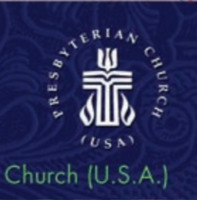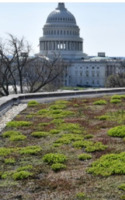Search
15 items
-
Earth Day statement from ELCA presiding bishop
The Reverend Elizabeth A. Eaton, Presiding Bishop of the Evangelical Lutheran Church in America (ELCA), issued an Earth Day statement on behalf of the ELCA. A salient excerpt from the statement is shown below:
"The effects of the warming climate are felt in nearly every corner of the globe. These include increased migration, food insecurity due to changing agricultural landscapes, national security issues and health problems. As bad as it is for all creation, the most vulnerable people around the world are suffering the most. Yet they have contributed the least and, as noted in the United Nation's 2030 Agenda for Sustainable Development,[iii] are ill equipped to adapt to or mitigate the effects of a changing climate to build resilient communities." -
Presbyterians and Climate Change
This article posted on Yale Climate Connections discusses grassroots efforts of Presbyterian organizations, and notes specific time frames of salient Presbyterian accomplishments with regard to climate change. The following excerpt provides a general overview of their goals and mission:
"Presbyterians are engaged in many activities to combat climate change, from Earth Forums to hunger programs addressing food and climate crises and protests against practices that encourage reliance on coal. Since 2010, the Presbyterian Church has given 80 congregations an Earth Care Congregation Certification for demonstrating a strong commitment to environmental care." -
Blessed Tomorrow - Caring for Creation Today - Commitment to Act on Climate Change
The Presbyterian Church acknowledges that burning fossil fuels can cause irreparable damage to the Earth and to humans, with a disproportionate impact on the poor and vulnerable, and advocate instead for cleaner energy sources. They emphasize that care for creation is not a political, economic, or scientific issue, but rather a moral responsibility laid before us by God. For this reason, they are partnering with Blessed Tomorrow, to facilitate the creation of new tools and guides that will help to create a more sustainable future. -
Solar
The Presbyterian Church has put forth the following webinar, providing some suggestions for both individuals and congregations to utilize cleaner sources of energy and reduce costs. The introduction is to the webinar is shown below:
"As the realities of climate change present an ever increasing urgency to our need to act faithfully in our energy consumption, many Presbyterians are exploring ways to support, purchase, and share renewable energy resources as an alternative to fossil fuel energy. From Presbyterian congregations drawing interest from the passers-by that notice solar panels on their rooftops, to a Presbyterian teen purchasing solar panels to charge his electric lawnmower (part of his carbon-neutral lawn-care service), the time is ripe to explore the options of solar energy as part of our Christian discipleship." -
Climate Change
The Presbyterian Church has put forth this video on care for creation, emphasizing that Christ has called us to go out into the world to care for creation and our fellow humans, especially the poor. The Union of Concerned Scientists has identified food, transportation, and energy as three key areas of focus to help stem climate change Congregations can help by implementing energy saving techniques, participate in recycling and composting waste, teaching children to grow food, and incorporating salient creation care concepts within educational settings. -
The Power to Change
The 218th General Assembly of the Presbyterian Church U.S.A. (PCUSA) has put forth this resolution on energy and climate change as a resource for both individuals and entire congregations. Topics at the forefront of the report include: global warming, eco-justice norms, energy guidelines, non-renewable energy sources, and alternative and renewable energy sources. The final section includes resources for education, action and advocacy. -
Restoring Creation for Ecology and Justice
This report was adopted by the 202nd General Assembly (1990) Presbyterian Church (U.S.A.). Their Committee on Social Witness Policy urges the assembly to adopt specified policies within the document. The report covers of multitude of critical environmental issues, with sound policy recommendations and actions that congregations can take to support the myriad of sustainability issues. -
A Shared Quaker Statement: Facing the Challenge of Climate Change
This statement calls for leaders to make sound decisions with regard to climate change, and for all people to cherish the Earth for future generations. The following introductory section highlights the sense of urgency:
"As Quakers, we understand anthropogenic climate change (climate change due to human activities) to be a symptom of a greater challenge: how to live sustainable and justly on this Earth.
We recognize that the current rise of greenhouse gas emissions is leading to an unprecedented rate of increase in global average surface temperature of extreme detriment to the Earth’s ecosystems and species, including human beings.
We recognize that catastrophic global climate change is not inevitable if we choose to act urgently." -
The United Church of Christ and Climate Change
This article from the United Church of Christ points to specified time periods/salient highlights of their responses to various environmental issues over the past 15 years. The United Church of Christ recognizes climate and energy issues as moral and ethical issues that affect everyone. However they also acknowledge that it most negatively impacts those with the least access to resources. -
Episcopal Church, Church of Sweden, ELCA commitment: "Sustaining hope in the face of climate change"
The heads The Episcopal Church, the Church of Sweden, and the Evangelical Lutheran Church in America (ELCA) signed a joint commitment to climate statement. The following are five salient points from their commitment:
"1) Advocate for national and international policies and regulations that enable a swift transition from dependence on fossil fuels to clean, safe, renewable energy, and for economic systems that are fair and just.
2) Sustain an interfaith, international conversation around climate change and social and economic justice while working to keep climate change in the public’s attention.
3) Encourage our faith communities to deeper theological reflection on the moral and ethical response to climate change, and then to make public witness about climate change through advocacy at the local, national and international levels.
4) Invite our communities to prayerfully consider how their own actions, lifestyle choices – particularly our energy consumption -- affect the environment.
5) Offer our communities continued opportunities to learn about climate change and the universal church’s response to this crisis." -
Episcopal Diocese of Ohio: Bellwether Farm
Bellwether farm is a new camp and education center of the Episcopal Diocese of Ohio. It is meant to provide leadership development and teachings through sustainable farming, food production, and care of the environment. It is located in Wakeman Ohio, with the goals of informing, inspiring, and empowering leaders for a sustainable future. The buildings are models of green technology featuring passive buildings, renewable energy, and water reclamation systems. -
United Methodist Agency Green Roof
John Hill, from the Board of Church and Society at the United Methodist Agency, narrates the video below about their recent green roof addition. The series of squares used covers the entire area of the flat roof, reducing energy consumption, making the building cooler in the summer and warmer in the winter. In addition, and equally important, it reduces storm water runoff. When it rains, the water remains in the roof rather than adding pollutants into the nearby watershed, which feeds into the Chesapeake Bay. -
Engaged Organizations: General Board of Global Ministries
General Board of Global Ministries discuss their vision and span of their work on their website. Their areas of impact run the gamut for a multitude of environmental and social justice issues:
"Connection is at the core of our work. Global Ministries connects The United Methodist Church, its people and congregations to partner with others engaged in God’s global work, which takes place in a variety of settings, countries and cultures.
Global Ministries works through missionaries and partners in more than 60 countries around the world. " -
Lutherans Reflect on Climate Change Conference in Copenhagen
This article discusses some of the sentiments regarding proceedings from the 2009 United Nations Climate Change Conference in Copenhagen. While some attendees expressed disappointment in the outcome, others were more optimistic about steps which may lead to more effective action for climate change in the future. The following excerpt provides a brief description of the event:
"More than 3,000 ELCA members, along with a coalition of U.S. faith leaders, sent some 20,000 postcards to President Barack Obama, urging him to be at the meeting, she said. Obama attended the conference and urged leaders of Brazil, China, India and South Africa to join the United States 'to fund developing nations' projects to deal with droughts,
floods and other impacts of climate change, and to develop clean energy,' among other agreements, according to a U.N. news release." -
Caring for Creation Today
This video, put forth by the Evangelical Church in America, encourages individuals to act as stewards by both assisting those in need and caring for our land, as God had intended. The salient message is to do what you can to work for change and care for God's creation, as this is our duty as humans.















